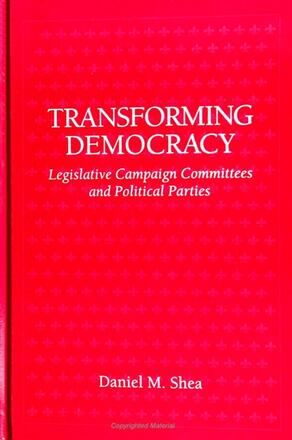
Transforming Democracy
Legislative Campaign Committees and Political Parties
Alternative formats available from:
Examines the emergence of state-level legislative campaign committees in the U. S. , which are quickly becoming the dominant force in state politics, and explores their relationship with traditional party organizations.
Description
This book examines the emergence of state-level legislative campaign committees (LCCs) and their relationship with traditional political party organizations. Now found in 40 states, LCCs provide extensive campaign services and are quickly becoming the dominant force in state politics. But where do these new organizations fit in the party rubric? Whereas most scholars suggest they are evidence of party evolution and growth, Shea disagrees, forcing a rethinking of precisely what we expect political parties to do.
Are state LCCs part of, and do they act like, party organizations? To answer this question, Shea examines surveys of over 300 state and county party leaders from around the nation and numerous sources of aggregate data. Using a mix of empirical and anecdotal information, the author looks at formal linkages, project interdependence, goals and activities, and general perceptions of party leaders. He concludes that LCCs are best conceived as independent campaign consulting firms rather than "party organizations" and that these new units may be contributing to party atrophy rather than party resurgence.
Daniel M. Shea is Assistant Professor of Political Science at the University of Akron.
Reviews
"Shea has undertaken an important work tracing the evolution of political parties in the states. As he indicates, no one has examined the growth of legislative party committees. Shea's work is the definitive study. What adds to the book is that he has conducted 300 interviews examining the impact of these committees on the legislatures themselves. Clearly, state legislative leaders are creating their own power centers independent of the governor. " — John Kenneth White, Catholic University of America